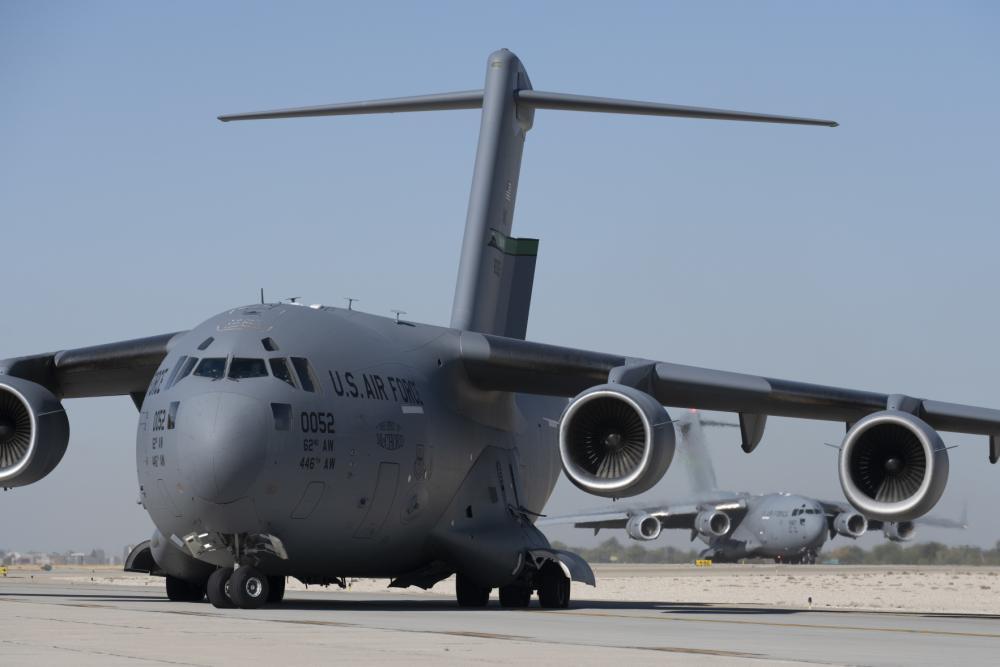In November 2022, the U.S. Air Force updated its safety rules for airlift of nuclear weapons to allow the C-17A Globemaster III aircraft to transport the new B61-12 nuclear bomb. The 62nd Airlift Wing C-17As at Joint Base Lewis-McChord serve as the Prime Nuclear Airlift Force (PNAF), the only airlift wing that is authorized to transport the Air Force’s nuclear warheads. The Federation of American Scientists reported that accompanied by training and certification of the aircraft and crews, cleared the C-17A to transport the newest U.S. nuclear weapon to bases in the United States and Europe. The updated Air Force instruction does not, as inaccurately suggested by some, but it documents some of the preparations needed to do so.

Politico reported in October last year that the United States has accelerated the fielding of a more accurate version of its mainstay nuclear bomb to NATO bases in Europe. The arrival of the upgraded B61-12 air-dropped gravity bomb, originally slated for next spring, is now planned for this December. The move, which involves replacing older weapons with the newer version at various storage facilities in Europe for potential use by U.S. and allied bombers and fighter jets, comes amid heightened tensions over Russia’s threats to use a nuclear weapon in Ukraine and growing concerns that the West needs to do more to deter Moscow from crossing that line. The upgrades to the B61 program have been openly discussed in budget documents and public statements for years.

The B61 is a family of nuclear bombs first developed in the early 1960s and initially demonstrated in underground nuclear tests in Nevada. It is a low to intermediate-yield strategic and tactical nuclear weapon featuring a two-stage radiation implosion design. The B61 is of the variable yield design with a yield of 0.3 to 340 kilotons in its various mods. It is a Full Fuzing Option (FUFO) weapon, meaning it is equipped with the full range of fuzing and delivery options, including air and ground burst fuzing, and free-fall, retarded free-fall and laydown delivery. It has a streamlined casing capable of withstanding supersonic flight and is 11 ft 8 in (3.56 m) long, with a diameter of about 13 inches (33 cm). Basic weight is about 700 pounds (320 kg), although the weights of individual weapons may vary depending on version and fuze/retardation configuration.

The 62nd Airlift Wing, sometimes written as 62d Airlift Wing, (62 AW) is a wing of the United States Air Force stationed at Joint Base Lewis–McChord, Washington. The 62nd AW is joined by its Reserve partner, the 446th Airlift Wing. Together, they fly 40 C-17 Globemaster IIIs to provide combat airlift for U.S. Armed Forces. It is assigned to the Eighteenth Air Force of Air Mobility Command and is active duty host wing on McChord. The wing is composed of more than 2,200 active duty military and civilian personnel. It is tasked with supporting worldwide combat and humanitarian airlift contingencies. The McDonnell Douglas/Boeing C-17 Globemaster III is a large military transport aircraft that was developed for the United States Air Force (USAF) from the 1980s to the early 1990s by McDonnell Douglas. Boeing, which merged with McDonnell Douglas in 1997, continued to manufacture the C-17 for almost two decades. The final C-17 was completed at the Long Beach, California plant and flown on 29 November 2015.

The $10 billion B61-12 Life Extension Program is managed by the U.S. Department of Energy and is meant to replace several earlier versions, including about 100 bombs stored at air bases in Germany, Italy, Belgium, the Netherlands and Turkey. The new version is also designed so that U.S. and allied bomber planes and fighter aircraft — including B-2 and B-21 bombers and F-15, F-16, F-35 and Tornado fighter jets — are all able to carry the weapon, as opposed to the several older versions of the B61 that have been in storage for years. The upgrades are all in the non-nuclear aspects of the unguided bomb’s design, and involve removing a parachute and installing a new tail kit and other improvements for “significantly greater accuracy. The U.S. Air Force conducted flight tests of the new bomb design on the F-35A in October 2021 and certified it on the F-15E in 2020. But the Pentagon reported in February that it planned to “complete nuclear design certification of the B61-12 with the F-35A before January 2023
















